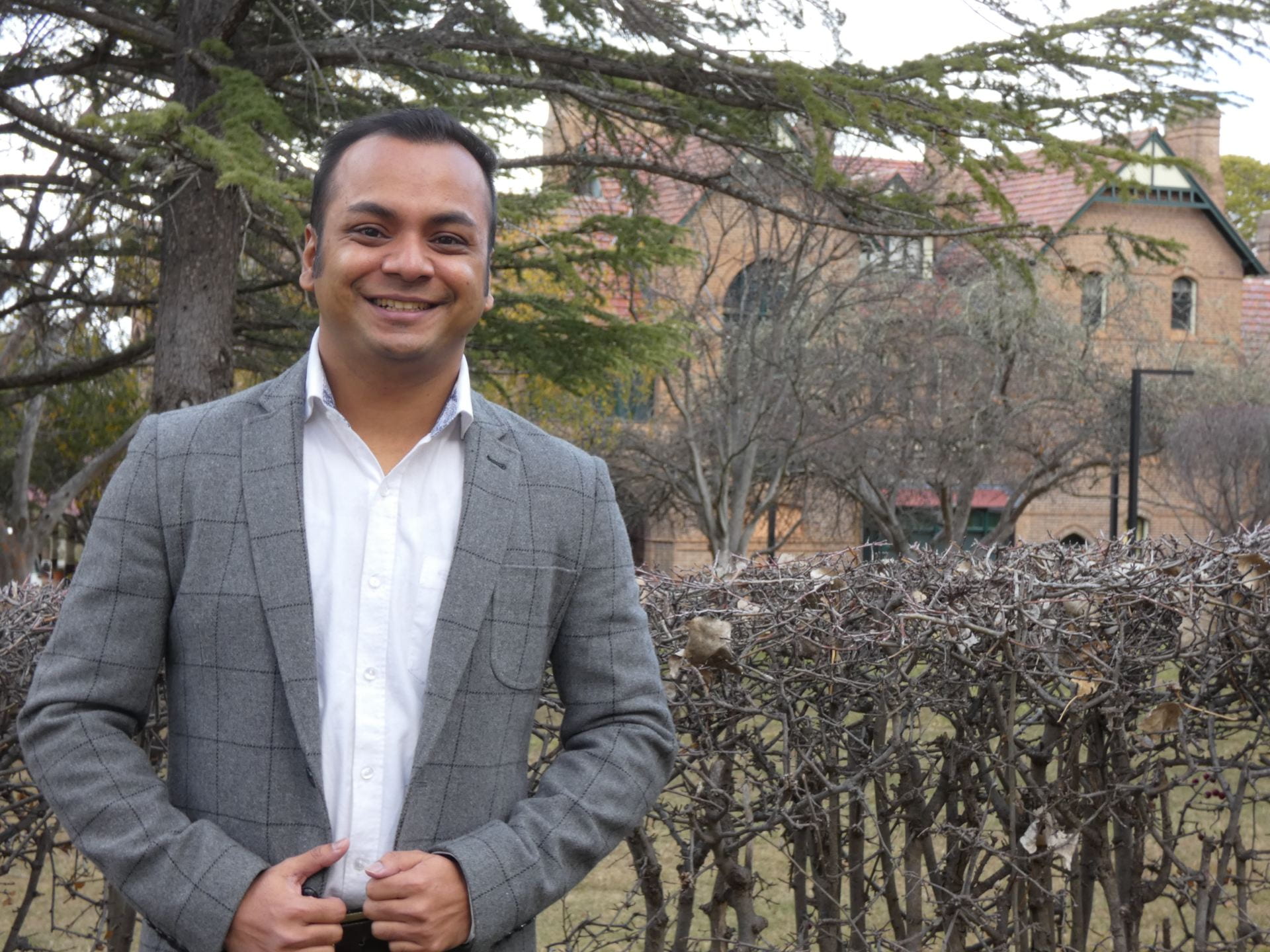Higher education can help make or break cultural diversity, says University of New England (UNE) PhD student Rafi Saleh.
Rafi, studying a PhD in linguistics at UNE, was an English literature and language teacher in Bangladesh when he became increasingly concerned by an “artificial monoculture” being created through the bias towards English-only learning in international universities like his own.
“English language proficiency in the international context is one of the most saleable skills. English is the language of technology. It’s the language of research journals. It has the language privilege. However, when teaching practice doesn’t tap into the multilingual nature of the classroom, it’s not catering to the needs of students,” he says.
While Rafi learnt to thrive in the English education environment, the initial struggle to survive, the high drop-out rate he saw and the cultural issues created by English-only instruction led to a desire to switch academic specialties and help change the system.
“Starting out at university in Bangladesh, I struggled a lot. The teachers I’ve interviewed for my research have said the same thing. We didn’t develop in the artificial English environment.
“And the problem is, once you start doing well at university, you start to forget your mother tongue. After one year of our master’s degrees, we’d forgotten Bangla spellings,” Rafi says.
“Interestingly, in the state-funded universities, where English doesn’t have the same monolingual privilege that it has in private universities, students tend not to develop English language proficiency to the standard required in higher education, because teachers in Bangladesh aren’t trained to teach languages effectively to multilingual students.
“Using all the languages spoken by students in the classroom must be done strategically, but when it is, it can improve learning outcomes in both language and content learning, as well as student satisfaction and self-esteem,” Rafi says.
Although Rafi started his linguistics training in Bangladesh, he realised there was a big gap in what he was researching and in what he was able to teach in his English-only language and literature classes.
“Linguistics studies in Bangladesh focused too much on English language learning. I was looking for a course that would equip me with the skills to teach students English while helping them gain Bangla proficiency as well,” he says.
Looking abroad to continue his studies, he gained a second master’s degree in the UK before coming to UNE to begin his PhD in linguistics, which offered both the research expertise and scholarship opportunities.
Rafi’s research is looking at the potential of ‘translanguaging’, or integrating a mix of languages into communication, to enhance teaching and learning at tertiary level. Working with supervisors Associate Professor Finex Ndhlovu and Professor Anne-Marie Morgan, Rafi is aiming to create strategies that could inform policies for universities to better utilise the multilingual repertoires of students for academic success.
“Translanguaging is about strategies for language learning and content learning. In international schools, how can you learn and use English, but scaffold it with the mother tongue, such as Bangla? If students learn a science or engineering concept, for example, in both languages, their knowledge will be stronger and they’ll be practising both languages,” Rafi says.
“It would change the multilingual world. Monolingual instruction creates the impression that students who are better at English are better students, when in fact all students can perform as well.
“For multilingual students, being able to learn in their mother tongue is empowering. It legitimises their home language and gives them a more positive attitude towards it. It can help students accept and take pride in multilingualism as part of their identity and it promotes social justice.
“Encouraging home languages in the classroom welcomes and celebrates language and culture at the same time, resulting in a better learning experience. It enables students to compare and contrast literature and ideas and gain higher order critical thinking skills in a way they can’t in a monolingual classroom.
“I was teaching English literature in Bangladesh, but Bangla authors have written on the same themes, issues and topics. Studying both would offer a much broader cultural perspective and experience.”
Further, Rafi says the English language bias in higher education means finding in-language learning resources to study academic subjects can be very difficult, adding an extra layer of complexity when grappling with new subject matter.
He’s looking forward to creating and seeing change.
“My research is dealing with real people and real issues, that’s what I like about it.
“I understand the gap between these higher education classroom policies and the people the policies are designed for. I want to save students from the struggle, help educators understand the issues and give them strategies for success in their multilingual classrooms.”



I have made some breakthrough on the issue with which the interviewee concerned and published with the Title [Reconsidering The Prevalent English Education System In Bangladesh] as an article, the link of which I herewith append for the readers concerned with the above-said issue.
https://archive.org/details/ReconsideringThePevalentELESystemInBangladeshRazaulFaquire
Great work Dear Honorable Sir
Good. You will be glad to learn that I am doing a lot of individual hands on practical research for the benefit of English learners in Bangladesh, particularly in secondary schools in rural Bangladesh. Seeing a lot of transformation . I write up my research findings and publish them in Bangladeshi journals so that my target audience have access to them. I employ PAR which we call “gonogobeshona” which all understand in Bangladesh. In gongobeshona teachers and students are actively involved in identifying their own problems and solving them – like writing their own English grammar books! Looking forward to your doctoral thesis. I completed an MA TEsol in Applied Linguistics from UNE in 2012 at the ripe age of 69. Some current faculty members may remember me as they were very supportive of their elderly student.